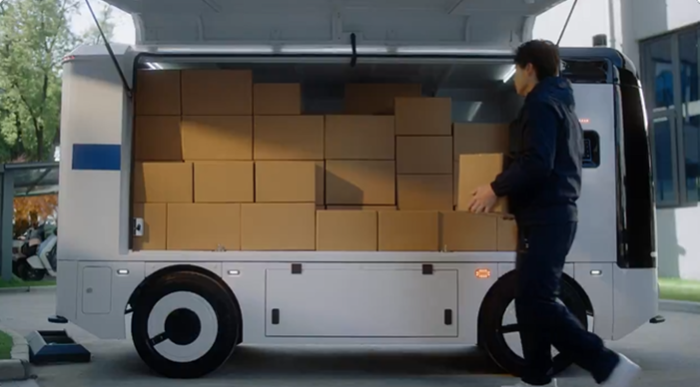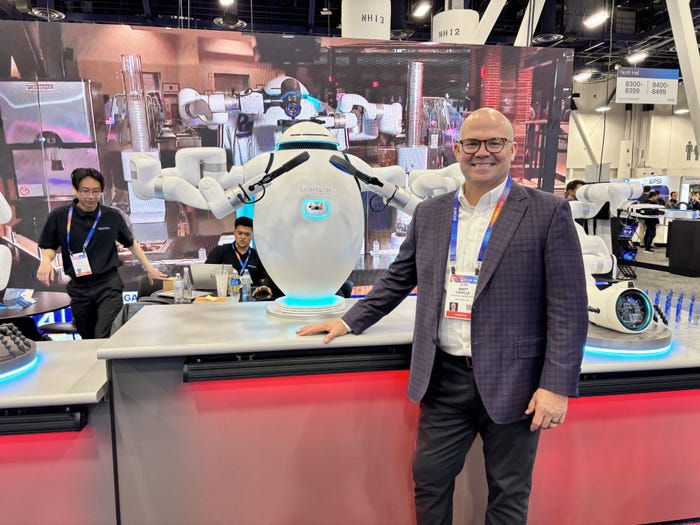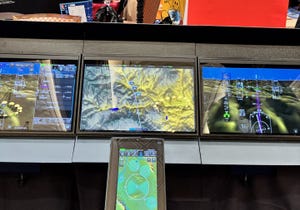Most Read This Week: Flying Taxi Company Moves to Production; Humanoid Robot Gains New Skills
Also inside, Microsoft, OpenAI to invest as much as $500 million in humanoid robot startup Figure AI
.png?width=1280&auto=webp&quality=95&format=jpg&disable=upscale)
Here are this week’s most-read stories on IoT World Today:
Flying Taxi Company Moving to Production; Final Testing Next
An eVTOL (electric vertical takeoff and landing) company has started construction of the first three of its flying taxi vehicles to be used for the federal approval process.
Archer Aviation is now set to begin the final assembly in the coming weeks and those piloted electric aerial vehicles (EAV) are aimed at flight testing and subsequent uses in “for credit” flight testing with the Federal Aviation Administration (FAA).
Final assembly of the Archer Midnight EAVs is being done at the company’s manufacturing facility in San Jose, California.
Archer recently completed the first phase of its flight testing, which involved complex flight maneuvers to capture data for analysis.
The next phase will see the EAV flying at greater and greater speeds until achieving a full wing-borne transition - demonstrating the ability to take off and land vertically and cruise efficiently in wing-borne flight.
Read more about Archer's production plans >>>
Boston Dynamics Humanoid Robot Prepares for Automotive Duties
Boston Dynamics has released a video update for its humanoid robot Atlas, showing it picking and placing automotive struts.
The video demonstrates Atlas’ object recognition capabilities and dexterity, as it ramps up for real-life deployment.
“Our humanoid robot gets ready for real work combining strength, perception and mobility,” the team said.
The video shows the robot from an outside perspective, as well as through its vision system to demonstrate how it interprets and navigates its environment.
Described by Boston Dynamics as the “world’s most dynamic humanoid robot,” Atlas previously showcased its athletic capabilities, assisting a worker around a controlled factory setup – picking and placing objects, climbing stairs and jumping over obstacles.
See Atlas’ new capabilities >>>
Microsoft, Open AI to Invest $500M in Humanoid Robot Startup
Microsoft and OpenAI are in talks to invest as much as $500 million in humanoid robot startup Figure AI.
If it goes through, the funding could raise Figure’s value to $1.9 billion, making it the first humanoid robotics unicorn.
Figure emerged from stealth last March with its humanoid Figure 01, which the company says is the “world’s first commercially viable” humanoid robot and is designed to tackle ongoing global labor shortages.
While the companies involved have not yet commented on the potential deal, humanoid robots are tapped as a significant source of investment interest in the next year as companies race to commercialize their designs.
See Figure’s robot in action >>>
Hyundai Self-Driving Taxi Company Takes Hit as Key Backer Pulls Out
Motional, Hyundai’s self-driving taxi subsidiary, is set to lose one of its largest financial backers in what could be another major blow to the autonomous vehicle industry.
Automotive parts supplier Aptiv said it is no longer prepared to commit money towards the project.
The news was confirmed by Aptiv chairman and CEO Kevin Clark in an earnings call, where he said the company needs to reduce costs and remain disciplined in what it was prepared to invest in.
It’s unclear where this leaves Motional, and while it is understood the company will continue to forge ahead with its commercialization plans, Hyundai will likely be looking to find a new partner and new investment.
Motional has been operating its self-driving Hyundai Ioniq 5 taxis in Las Vegas over the past couple of years, albeit with safety drivers, and has formed partnerships with ride-hailing companies Uber and Lyft.
Read more about the decision >>>
ChatGPT-Powered Robots Build Better Human Connections
A new study found GPT-powered robots capable of expressing emotions are perceived as more likable, trustworthy and capable of establishing better connections.
The team from Max Planck Institute for Psycholinguistics deployed ChatGPT in robot assistants and monitored human participants’ responses to them while playing a card sorting game.
The study found that when the robot displayed an appropriate emotional response to the context, the human participants reported a more positive experience, and performed better in the task.
The study's findings could guide future robotic advancements, enhancing human-robot interactions for caregiving tasks like therapy, companionship and customer service.
About the Author
You May Also Like








